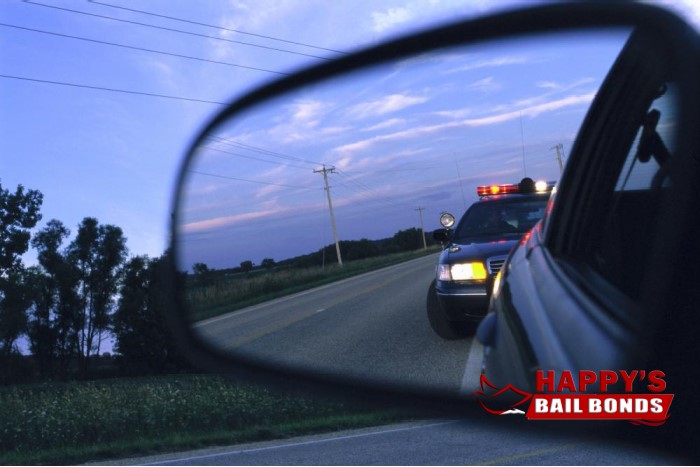
30 Mar What Are California’s Laws on Car Chases?

California residents, especially those living in Southern California, are pretty used to seeing car chases on television. They happen all of the time out here, and they can be kind of entertaining. The question of how will the chase end can keep everyone glued to their screens. Will the driver give up quietly, or will the chase end in crash?
As exciting as watching a police chase may be, being in one is never a good idea. A person running from their problems never helps them solve those issues. This is definitely true for car chases. The person went from getting pulled over by one officer to being chased by an entire fleet of vehicles. On top of that, they are adding a whole lot of charges to their rap sheet for running away. Running just makes everything worse.
Running from the Police Is Illegal
No one ever wants to get pulled over. Being pulled over means getting a ticket in most cases, and in severe instances, getting arrested. Nobody wants that. Unfortunately, once an officer has a driver in their sights and is flashing their lights, the driver can’t avoid the inevitable. Trying to do so will only make things worse.
Take for instance California Vehicle Code (VC) 2800. This law makes it illegal for a person to fail to comply with a uniformed officer’s instructions, orders, or signals. When an officer flashes their lights and blares their siren that is a signal for a person to pull over. Complying with the officer is in the person’s best interests because if they don’t, they have broken this law.
Failing to pull over just adds another offense that the person will be charged with when caught. Remember, every police chase comes to an end with the person being arrested. The longer the chase takes, the worse the consequences.
Penalties for Running
Depending on how a person runs from the officer after being signaled to pull over determines what kind of consequences. If a person simply avoids stopping for the officer but doesn’t drive recklessly, then they will face charges under VC 2800.1. This law makes it illegal for a person to evade a police officer while in a vehicle. A person caught doing this will face misdemeanor charges with consequences that can include:
• A max fine of $1,000.
If, while a person is fleeing from the police, they drive recklessly, they will face charges under VC 2800.2. This law makes it a crime to drive recklessly while evading the police. This is a wobbler offense that can be charged as either a misdemeanor or as a felony depending on the facts of the case and the person’s criminal record.
As a misdemeanor, a person will face:
• A max fine of $1,000.
• Misdemeanor probation.
As a felony charge, a person will face:
• A max fine of $10,000.
• Felony probation.
If, while a person is fleeing, they cause serious bodily injury or kill someone, then they will face charges under VC 2800.3. This law makes it a crime to evade a police officer and cause injury or death. The consequences of this crime can vary greatly depending on the facts of the case.
For instance, if a person only caused injuries, they could face either misdemeanor or felony charges. What they face depends on the facts of the case and the person’s criminal record.
As a misdemeanor charge, a person faces:
• A max fine of $10,000.
• Misdemeanor probation.
• Having the vehicle impounded.
• Having their driver’s license suspended.
As a felony, a person will face:
• A max fine of $10,000.
• Felony probation.
• Having the vehicle impounded.
• Having their driver’s license suspended.
If a person caused a death while evading the police, they will face felony charges that come with:
It is important to remember that here in California, anyone convicted of a felony crime is prohibited from owning a gun.
Pulling Over Is the Best Option
No one likes getting pulled over and being given a ticket. However, taking the ticket is always the better option. Running from the police only makes things worse by adding more offenses for the police to charge the person with. This means a person will face more fines and jail time than they would if they just took the ticket, which doesn’t come with any jail time.
What do you think of California’s laws regarding evading police officers? Do the consequences match up to the crime, or should they be readjusted?

Sorry, the comment form is closed at this time.